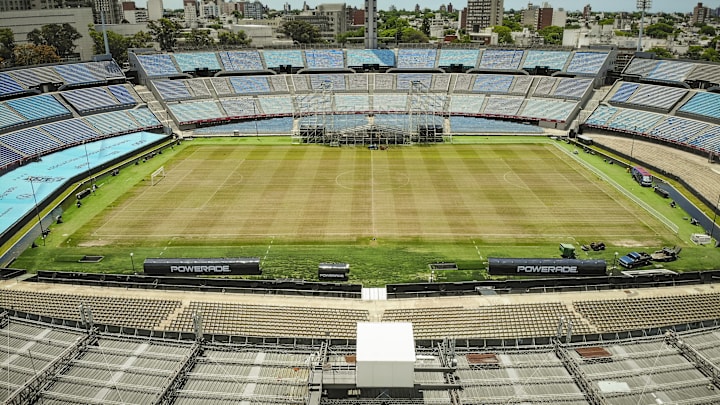The semantic semifinal between Peñarol and Botafogo in the Copa Libertadores took an unexpected turn because of the controversial decision taken: instead of being at Peñarol's home, Campeón del Siglo Stadium, it was transferred to the Centenário in Montevideo. That historical stadium is not Peñarol's property but belongs to the city council of Montevideo; here begins the new conflict from Conmebol, ranging from the Uruguayan government and the AUF to the club itself.
Follow Playing for 90 on X (Twitter).
A change of venue for fans, but most of all for the Botafogo supporters who came to the Uruguayan capital, was just the beginning of a series of misunderstandings. To Botafogo, this change means loss of respect and reciprocity; to Conmebol, the change was necessary to fulfill the security requirements and regulations for the current tournament.
Security vs Regulation: Choosing a Bigger Stadium
It holds 65,000 compared to Campeón del Siglo's 40,100 and was considered a necessary switch for this match as the visiting fans, especially Brazilians, were placed in a vulnerable situation with their safety at risk.
Centenário is situated in the central area of Montevideo and is surrounded by parks, making it easier to control fan movement. The Campeón del Siglo is in a rather remote area, but most likely this match would have been difficult for them to host due to the visiting fanbases that would require control.
However, the decision to play at the Centenário was not without its opponents. The CBF, representing the interests of Botafogo, pressed for respect for the principle of reciprocity—a demand running directly against local imperatives on security. So, what comes first? Adherence to rules or ensuring safety for all concerned?
Uruguayan Authorities: Public Safety Above Everything
The Uruguayan Interior Minister Nicolas Martinelli called for the policy of "home fans only" at Campeón del Siglo, citing safety concerns with recent clashes in Rio de Janeiro and an increasingly hostile atmosphere among Uruguayan fans.
The state institutions, represented by the Police Commissioner General José Manuel Azambuya, supported Centenário not only because of its higher capacity but also because, as they see it, police already have experience in managing big complicated events there.
It was a pragmatic need for Conmebol. The head of the Uruguayan National Police underlined that the needs of public safety were above those of the event and that Centenário would be offering better control. Centenário was where the insistence of Conmebol to include both sets of fans found their middle.
Conflict, Tensions, and Losses: The Perspective of the Fans
Moving the game to Centenário is not only a logistic issue but also a means of providing safety to the presence of Botafogo supporters in Montevideo. Fans were already in high numbers suffering not only the travel costs but also threats, even reports on racism.
The displeasure was immense among the Botafogo fans over what they described as a "lack of welcome" in Montevideo. The hostility in the atmosphere and fear of possible clashes raise many questions among people about safety for Brazilians when having both sets of fans.
On the other side, Peñarol's president spoke of his discontent and accused Botafogo of "creating a war zone-type atmosphere." He called for attendance to be restricted to local fans, as the only way that clashes will be avoided.
His comments added rivalry to an already tense and divided situation; for most fans and sports critics, he only heightened the risk of violence and the likelihood of alienating fans who would be visiting.
The CBF and Conmebol: In Search of Balance
Conmebol's attitude can be characterized as pragmatic, but the reaction by CBF showed this was more than a change of venue. Underlining its unhappiness with the last-minute changes and the consequence on Botafogo's logistics and those of its fans, the principle of reciprocity appeared from CBF.
The CBF also went on to underline, while defending its affiliate club, that South American soccer will continue to find it of utmost importance to have both sets of fans present in a stadium to complete the experience of the beautiful game.
